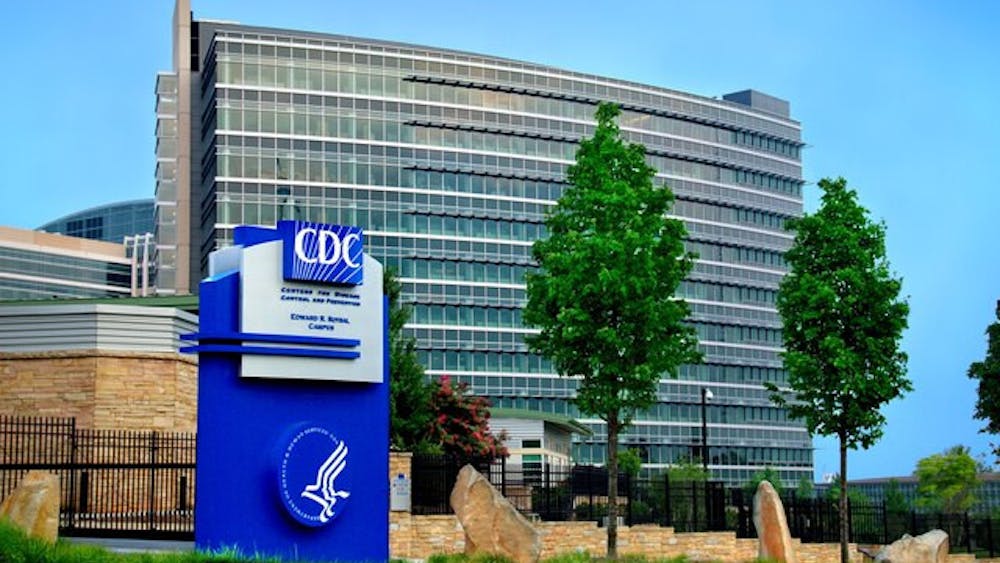As one of the grimmest years in recent memory comes to an end, a glimmer of hope has emerged: a safe and effective COVID-19 vaccine.
On March 30, the Trump administration established “Operation Warp Speed,” a public health initiative that expedited COVID-19 vaccine development. Although the haste wasn’t ideal, increasing vaccine development funding was necessary as thousands died. On Dec. 11, the Food and Drug Administration (FDA) approved Pfizer’s vaccine, and nearly three million doses were shipped nationwide. Moderna’s vaccine, which was tested at Emory, was approved shortly thereafter. In the early stages of vaccine distribution, however, doses have only been available for health care workers and high-risk individuals. As vaccines become more accessible in 2021, Emory should mandate all students and staff returning to campus receive a COVID-19 vaccine.
Emory is no stranger to vaccine mandates. On Nov. 18, Student Health Services Executive Director Sharon Rabinovitz announced that all students returning to campus this spring must receive a flu vaccine. As soon as COVID-19 vaccines become available for students, administrators should require them as well. In an ideal world, achieving herd immunity would require around 70% of a given population to receive the vaccine. But uncertainty regarding the vaccines’ ability to stop transmission of COVID-19 and inequitable access to vaccination nationwide also mean that Emory could need to vaccinate almost all of its on-campus community to achieve meaningful levels of protection. As such, it is crucial that Emory requires all students and staff to receive a COVID-19 vaccine as they become readily available.
If the University mandates vaccinations, some will inevitably object. Those who do so on substantiated medical grounds or on the basis of religion should receive exemptions. Moreover, marginalized communities are rightfully wary of the vaccine due to the medical community’s historical maltreatment of Black, Indigenous and people of color (BIPOC) in the U.S. The University must seriously acknowledge these doubts.
In a recent Kaiser Family Foundation study, 35% of Black respondents claimed they would not receive a COVID-19 vaccine, regardless of its safety or availability, compared to just 26% of white respondents. This disproportionate reticence owes largely to the medical racism that BIPOC have suffered for so long. Unethical clinical studies conducted on BIPOC, such as the 1932 Tuskegee Syphilis Study, in which 600 Black men endured untreated syphilis for 40 years, are examples of how medical racism continues to disproportionately harm BIPOC. Implicit bias in quality of care and other manifestations of medical racism have also produced a persistent distrust of the health care sector in marginalized communities.
There also exists a general distrust of the vaccines’ expedited development: a November Gallup poll found that 42% of Americans currently would refuse the vaccine, and 37% of those objectors cited rushed development timelines as a primary concern. In alleviating public distrust, the University officials must clarify the scientific processes underlying vaccine development and emphasize that the novel COVID-19 vaccines have passed all required testing procedures.
Contrary to public concern about the vaccine’s rushed development, no companies or regulators involved in Operation Warp Speed skipped any steps in the testing and approval of novel vaccines. The Centers for Disease Control and Prevention outlines six required stages of vaccine development. No approved or prospective COVID-19 vaccine is an exception to FDA requirements, and neither the FDA nor drugmakers are cutting any regulatory corners; they’re just working faster than usual.
Emory must remain mindful of this country’s extensive history of medical racism when encouraging others to receive the vaccine. Rather than shaming the wary, we, as a University, must combat misinformation and build trust between communities of color and the medical field. Platforming BIPOC medical leaders like Sandra Lindsay, the first person to be publicly vaccinated in the U.S., can build confidence in the vaccine as it becomes more widely available. Given Emory Healthcare’s enormous influence in the medical community, it is their duty to dispel fears surrounding the vaccine by explaining the vaccine approval process and conducting information campaigns with accessible language. This is key to ensuring the vaccination effort’s equity and effectiveness, and it could reach people skeptical for personal reasons as well.
The pandemic has already killed more than 300,000 Americans, but vaccinations could prevent thousands more deaths and end our collective suffering. Given this country’s history of medical racism and the vaccines’ quick development, skepticism thereof is understandable. Emory must require all students on campus receive COVID-19 vaccines once available. In eliminating COVID-19, the community must also accordingly stress the importance and safety of vaccination to finally overcome this pandemic.
The above editorial represents the majority opinion of the Wheel’s Editorial Board. The Editorial Board is composed of Sahar Al-Gazzali, Brammhi Balarajan, Viviana Barreto, Rachel Broun, Kemal Budak, Jake Busch, Sara Khan, Demetrios Mammas, Meredith McKelvey, Sara Perez, Ben Thomas, Leah Woldai and Lynnea Zhang.





